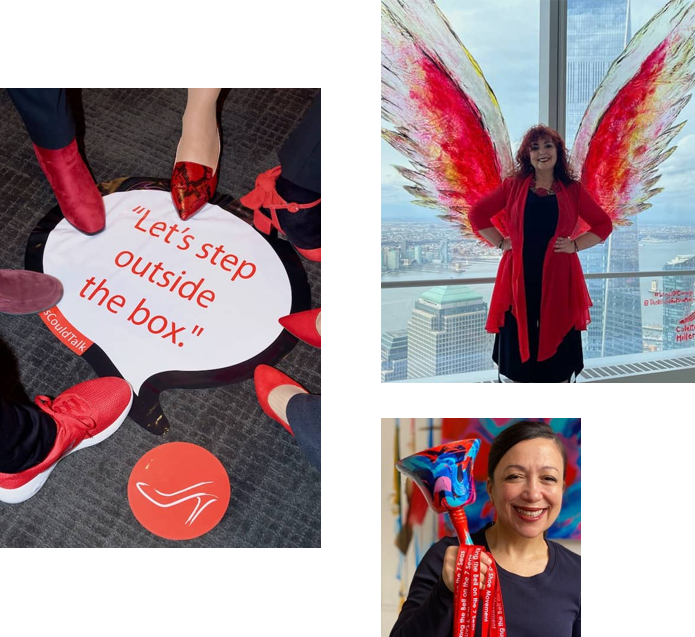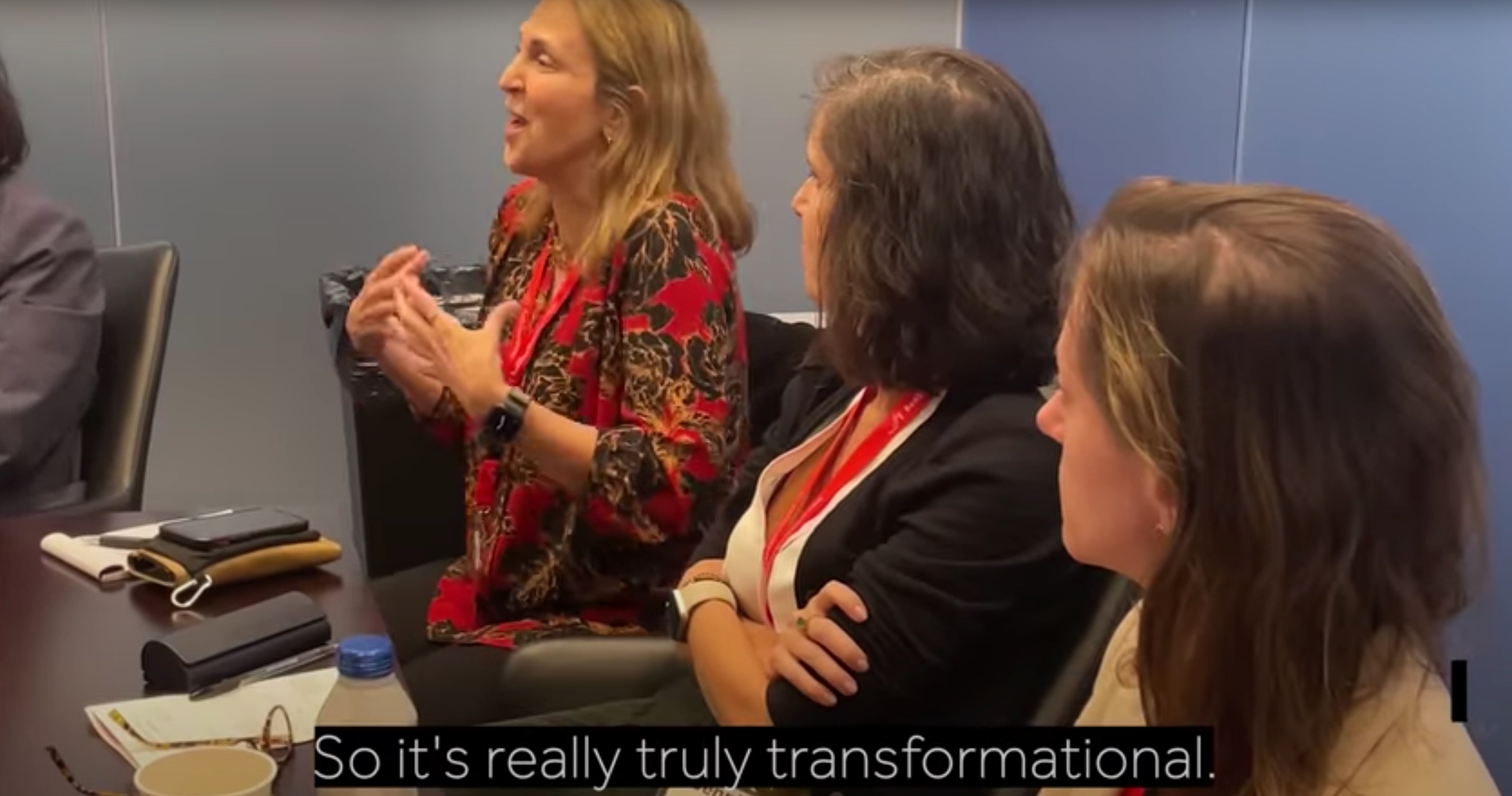- About Us
- Our Solutions
- What we can do for you
- Internal Impact – Step Up Plus
- Internal Impact – Step Up Men
- Internal Impact – Walk the Talk
- Internal Impact – Signature Event
- Internal Impact – The RSM Circles
- External Impact #RedShoeTuesday
- External Impact #WingsOfCourage
- External Impact – Ring The Bell
- External Impact – Red Shoe Tuesday Destinations
- Awards
- Blog
- Destinations
- Contact Us
The RED SHOE MOVEMENT
Elevate Your Business with Increased Numbers of Female Leaders. Transform your Culture with Us.
Self-Empower your Female Talent • Turn your Men into Inclusion Champions • Solidify your DEI Credentials in the Market. Experience Transformative Growth with our unique 360 degrees approach.
Meet with us online
Let’s find a moment
Schedule a Call for a Free Consultation About Programs & Services — Organizations Only


about us
A 360º Approach Proven to Transform your Workplace Culture
Nurture your female workforce and build a truly inclusive environment. With us, every step towards diversity strengthens your company’s heart and image
- Empowerment Through Expert Coaching
- Inclusive Workplace Strategies
- DEI Integration in Business Practices
- Building Stronger Business Networks
Our Services
Internal Impact: Professional Development with a Unique Approach
Unlock the full potential of your female talent and turn your men into inclusion champions with our proven proprietary approach.
Ignite and sustain your team's growth with this year-long, comprehensive development program, featuring expert coaching, webinars, and interactive content to boost productivity and engagement.
Transform your male employees into advocates for gender inclusion with this specialized program, offering webinars and podcasts designed to foster a supportive and inclusive workplace environment.
Embed allyship deeply within your organization's culture with this hands-on program, providing training and conversations to model and practice effective allyship for a more inclusive workplace.
Experience transformative empowerment and networking at our signature event, featuring interactive sessions, executive panels, and action planning, all focused on women’s career advancement and mutual mentoring.
Success Projects
External Impact: Cause Marketing Initiatives
Inclusion Communication Campaigns that strenghten your DEI Credentials, and position you as an employer of choice.
Building Inclusive Futures: Discover how our comprehensive programs have not only nurtured female talent but also reshaped corporate landscapes towards greater equity and productivity.
Testimonials
What our clients say

“Ultrices gravida dictum fusce ut placerat orci nulla pellentesque. Aliquet porttitor lacus luctus accumsan tortor. Sed risus ultricies tristique nulla aliquet enim tortor at. Build any site you can imagine with no coding skills.”
David Finix
Company CEO
“Ultrices gravida dictum fusce ut placerat orci nulla pellentesque. Aliquet porttitor lacus luctus accumsan tortor. Sed risus ultricies tristique nulla aliquet enim tortor at. Build any site you can imagine with no coding skills.”
Stephen Reynolds
Company Founder
“Ultrices gravida dictum fusce ut placerat orci nulla pellentesque. Aliquet porttitor lacus luctus accumsan tortor. Sed risus ultricies tristique nulla aliquet enim tortor at. Build any site you can imagine with no coding skills.”
Barbara Morales
Web Desginer
“Ultrices gravida dictum fusce ut placerat orci nulla pellentesque. Aliquet porttitor lacus luctus accumsan tortor. Sed risus ultricies tristique nulla aliquet enim tortor at. Build any site you can imagine with no coding skills.”
John Doe
Project Manager
Pricing Plans
Flexible pricing plans for your
Ultrices gravida dictum fusce ut placerat orci nulla pellentesque. Sed risus ultricies
tristique nulla aliquet enim tortor at.
Book Our Services
+1-202-555-0153
Send your Email
info@powersquall.com

Premium Plan
$249.00
Per Month
Sed sagittis donec pulvinar tellus egetmagna aliquet ultricies.
Whats included?
- Consectetur Adipisicing
- 24/7 Customer Support
- Consectetur Adipisicing
- Consectetur Adipisicing
- Free Equipment Use
Popular

Professional Plan
$149.00
Per Month
Sed sagittis donec pulvinar tellus egetmagna aliquet ultricies.
Whats included?
- Consectetur Adipisicing
- 24/7 Customer Support
- Consectetur Adipisicing
- Consectetur Adipisicing
- Free Equipment Use
Across the Globle
Get in Touch with us,
Get in Touch with us,
We Work Globally


Hotspot Title
Lorem Ipsum is simply dummy text of the printing and typesetting industry.

Hotspot Title
Lorem Ipsum is simply dummy text of the printing and typesetting industry.

Hotspot Title
Lorem Ipsum is simply dummy text of the printing and typesetting industry.

Hotspot Title
Lorem Ipsum is simply dummy text of the printing and typesetting industry.

Hotspot Title
Lorem Ipsum is simply dummy text of the printing and typesetting industry.
Red Shoe Movement Press
They Talk About Us

Red Shoe Movement News





























